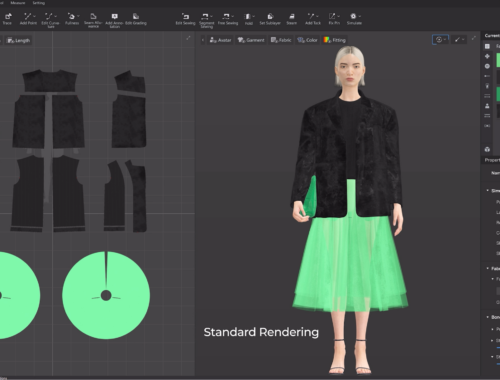‘People in the domestic game are fatigued, lacking a feeling of connection to the professional game’
AS WELL AS previewing this weekend’s Rainbow Cup action and exploring the structural failings and possible solutions within Irish women’s rugby, this week’s The42 Rugby Weekly saw Bernard Jackman and our own Murray Kinsella and Gavan Casey look at the bigger picture for Irish rugby generally, and challenges of its own creation that it may soon face off the field.
It was a conversation centred on coaching pathways in Ireland — or lack thereof for native coaches who cut their teeth on the club or schools scene — which Jackman cited as a symptom of a wider disconnect between the amateur and pro sports in this country.
On Wednesday, Jackman responded on Twitter to reports in the Limerick Leader that Munster were set to add Andy Kyriacou to their backroom coaching team. The English former hooker spent a season on loan at Munster from Saracens in 2006/07 and went on to represent Ulster but has spent the majority of his coaching career to this point in the UK, also working as a forwards coach with Russia in the middle of the last decade.
At the time, Jackman tweeted of the reported signing: “Nothing against Andy who I am sure is a great coach and person but it must be very tough for any coach in the Irish domestic game to see where the opportunity for progression is? Munster have produced lots of quality players through their Domestic game and the coaches in that.”
On Rugby Weekly, Jackman stressed that the reported recruitment of Kyriacou to Munster’s academy staff was only a minor illustration of his wider point about coaching development in Ireland, upon which he elaborated in a discussion with Murray and Gavan.
“I remember on our coaching course [in France], we went and spent some time with Christophe Urios, who was the Castres coach and is now coaching Bordeaux — and Bordeaux are in a Champions Cup semi-final, they’re building a really nice project there,” Jackman said.
“He coached Oyonnax for seven or eight years (2007-2015) and he explained his philosophy and his project. And do you know what he copied? He copied Munster.
“So, he basically said, ‘I saw this team playing in Europe with fans who were absolutely passionate about it, players who would die for their jersey on the field, and this idea of a ‘Munster man’.’
“And the term they used was ‘Oyo man’.
“So, if I want to be an Oyo man, what does an Oyo man look like? ‘They stand up and fight’ — this conversation was obviously all in French but ‘they stand up and fight, they respect the jersey, they’re close to their fans, they have an identity.’
“And he created this identity in Oyonnax, a tiny club in a tiny town, and they got promoted from Pro D2 and they actually qualified for the Champions Cup, based on this mentality of ‘Oyo men.’
“And Urios brought the same thing to Castres and he’s brought the same thing to Bordeaux. But it’s copying Munster, right?
“So, Munster couldn’t have done too bad a job if someone in France who has been successful has tried to learn about their history, their identity.
“And look, I know I’m always giving out about Munster at the moment but I’m just using them as an example here; I think all of the provinces could do better with this. But you look at Munster and Johann [van Graan], their head coach, is South African. The defence coach is South African. The forwards coach is English. The backs coach is Australian. The skills coach who comes in part-time is a New Zealander. So, where is the identity with Munster in that coaching group?”
Bordeaux head coach Christophe Urios has taken a leaf out of the old Munster book throughout his coaching career. Source: Laszlo Geczo/INPHO
After a listing examples of foreign coaches under whom he had worked in Ireland, Jackman continued: “Absolutely, we can learn a huge amount by bringing in top-end foreign coaches. We have to give our players the best possible environment.
“But I’ve also been around the block and I know that, say, I helped out last year with Newbridge College and Johne Murphy is a very good coach. There’s a guy over in St Michael’s, Emmet McMahon — you try and break down the Michael’s forward pack, because we played them last year, and they’re unbelievably well drilled.
“If you coach at schools level, you’re coming up against a lot of good coaches and I find it hard to believe that there’s not someone in Ireland coaching at schools or domestic level who is ready to get an opportunity to coach kids (in a provincial academy) who are only two years older than those they’ve coached all their lives.
“It’s not about Andy [Kyracou],” Jackman reiterated. “It’s just that I find it hard to believe a province like Munster — and it doesn’t have to be Munster; it could be someone from Ulster, Leinster or Connacht who’s dedicated, wants a shot, has proven himself over the last five or six years or 10 years or 15 years, as a good coach here.
“Like, Andy Kyriacou was coaching in a private school in England. The new skills coach at Ulster (Craig Newby) was coaching in a private school in England. If you bring Michael’s or Newbridge over there, we’d probably hammer them. It’s not a different level. [Coaches from foreign grassroots level] haven’t gone and consistently shown they’re way better than our guys but we just don’t seem to give our guys a shot. It’s nearly a hindrance to be from that province [when applying for a job here], I think; it’s looked down upon.”
The former Ireland hooker said of coaches working at grassroots level in Ireland that if you “sap their energy constantly through lack of care, lack of pathways, eventually you’re left in a poor state.”
He continued:
“Suddenly, then, attendances drop, sponsorship drops, and the professional game doesn’t have the money it has now, and then you’ve got to try and dig yourself out of a hole.
“So, it’s just a case of actually flagging this in my opinion. People in the IRFU will give me numbers about coaching courses and all of that stuff, and that’s absolutely their prerogative. I’m saying, in my opinion, the coaches I speak to in the club game, and I speak to a lot, because I’m coaching in Bective; in the schools game, I’m coaching in Newbridge; the people who reach out to me don’t feel that there’s any real future for them. And that’s based upon not being able to get a job.
“The majority of people won’t care about it but the grassroots people, the people in the club game: they’re the quietest.
Gavan then put it to Jackman that ‘the majority’ of people who are invested in Irish rugby actually belong to the club game, not the professional game, to which the Bective head of coaching responded: “Yeah, but they’re broken. They feel disenfranchised. It’s actually very sad. It’s very sad. People come up to me in the street and vent.
“It’s not the end of the world for the IRFU because they’ve got their performance metrics but I think, long-term, it’ll bite us on the ass.”
Of this perceived disconnect, Murray added: “My experience is very similar to yours, Bernard. Certainly with coaches who are frustrated by there not being a clear pathway, and that pathway doesn’t even need to be towards being a professional rugby coach with Munster or Leinster; it’s a pathway towards just being a better coach and having access to good resources to increase their skills.
“Even with the Ireland team, there’s a… I don’t want to say ‘dislike’ because that’s a strong word…”
“An apathy, Murray,” Gavan suggested.
“Apathy — that’s the perfect word for it,” Murray replied. “And that is sad, really. Because those are people who have invested their whole lives; all of that free time and a lot of their own money into rugby, following it and coaching it.”
The42 Rugby Weekly is available every Thursday, wherever you get your podcasts. Plus, Rugby Weekly Extra, a nerdy deep-dive into the past weekend’s on-field action with Murray Kinsella and Eoin Toolan, is available every week for The42 members.
Click Here: cheap gold coast titans jerseys
Source: The42 Rugby Weekly/SoundCloud
Murray Kinsella, Bernard Jackman and Gavan Casey look at the bigger picture for Irish women’s rugby, the disconnect between the amateur and pro games, and the anticlimactic ‘northern’ Rainbow Cup.


